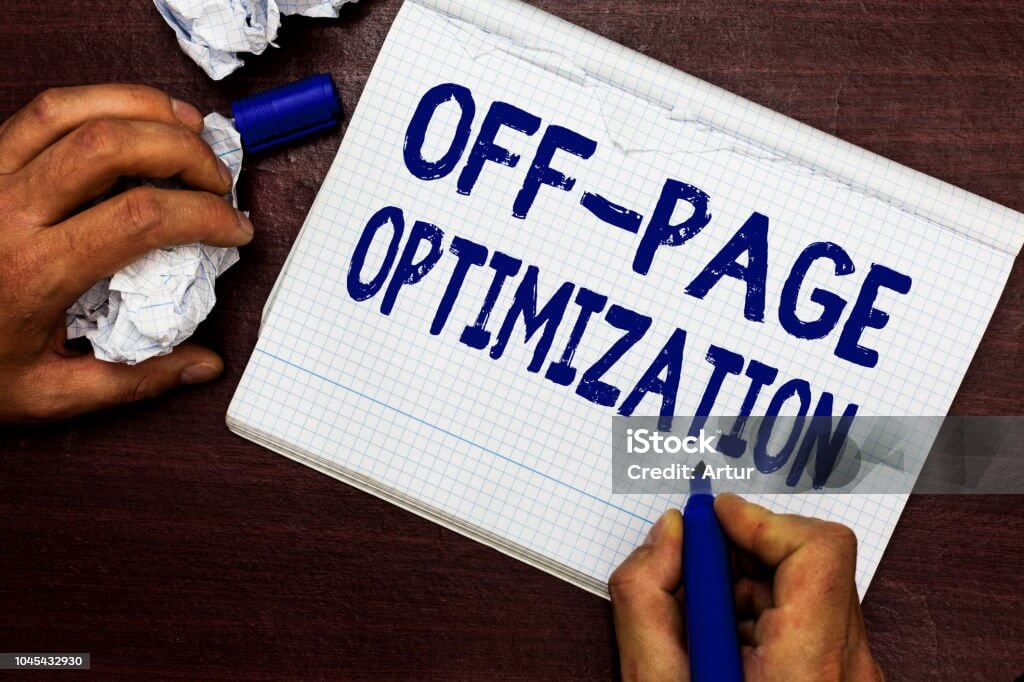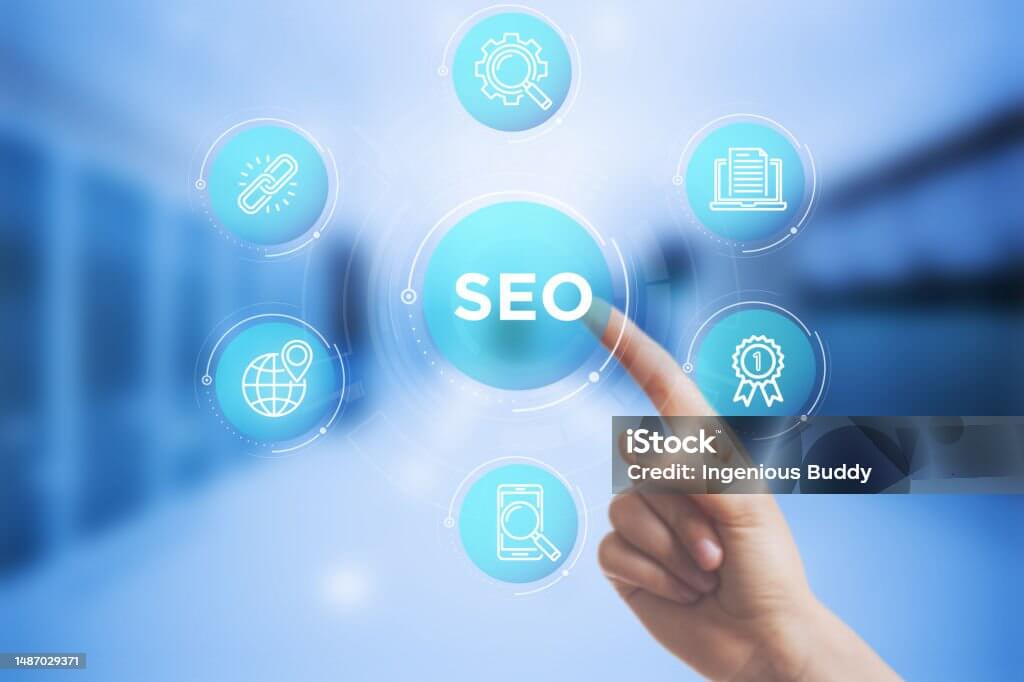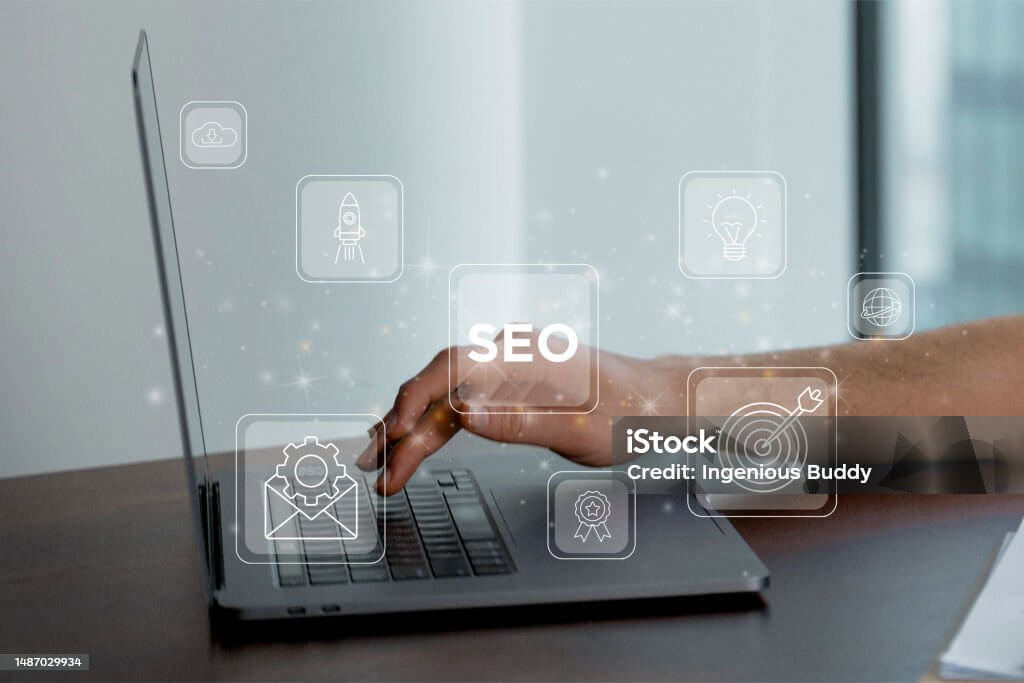
Once you create relevant content in your niche that is valuable to your target audience and optimize it for on-page SEO, the next step is to work on off-page SEO. Both on-page and off-page SEO contribute equally to your page ranking.
While on-page SEO is all about optimizing your website’s content, structure, title tags, and meta descriptions, off-page SEO focuses on all external factors contributing to your website’s ranking on search engines.
Let’s discuss what off-page SEO is, why it is important, and top off-page SEO best practices.
What is off-page SEO?
Off-page SEO refers to all the activities that you do outside your website to improve your search engine rankings. The key factor of off-page SEO is link-building, which involves acquiring links for your website. The more authoritative websites link back to your website, popularly known as backlinks, the more SEO weightage it gets while increasing the chances of your content ranking higher organically.
Simply put, backlinks are one of the off-page SEO techniques that signal Google about your website’s expertise, authority, and trust (EAT). It’s like other websites recommending your website, content, product, or services. Thus, acquiring links from high-authority websites enhances your online reputation and boosts your rankings on SERP (Search Engine Results Page).
How Off-page SEO Works?

The whole idea behind off-page SEO is to promote your website’s content as highly valuable by generating high-quality backlinks. One of the prominent Off-page SEO activities involves link building. It’s like other websites giving citations or recommendations for your website.
According to Google, the more backlinks you have, the more trustworthy your website is. However, the quality of your backlinks is more important. Thus, backlinks from authoritative websites are more robust than those from low-authority websites.
So, how do you get backlinks? Direct outreach is one of the SEO tactics that most SEO professionals use to get backlinks. It’s like approaching relevant websites related to your niche and checking whether they can link to any piece of your content.
You can also use Site Audit tools to identify broken links on relevant websites and approach them with a valuable article from your website. You can also make use of the website Help a Reporter Out (HARO) to acquire backlinks.
Apart from link building, you can also build social profiles and share valuable content regularly. That also sends a signal to Google about your brand’s authority. In short, it’s all about building your brand’s online reputation and getting noticed by Google.
On-page SEO and Off-page SEO
On-page SEO involves optimizing the elements on your website, such as content, title tags, URLs, images, headings, internal linking, etc. For instance, the web content should be relevant and structured properly with appropriate headings, subheadings, and faqs to make it easier for the search engines to understand the context and crawl it for relevant search queries. Valuable content and easy navigation are the prime factors of an on-page SEO strategy to ensure an excellent user experience.
Off-page SEO, on the other hand, involves boosting your website’s visibility and authority by indulging in activities like link building, direct outreach, social media marketing, influencer marketing, online reputation management, etc. When other credible resources like authoritative websites endorse your brands, Google considers your website as authoritative and reputable, too.
10 Off-Page SEO Best Practices for Higher Rankings

Here are some 10 best practices that you should tick on your off-page SEO checklist.
Publish High-Quality Content
There is no shortcut to writing relevant and useful content that provides value to your users. Understand your audience’s needs, doubts, questions, and pain points and create meaningful content addressing them. When audiences find your content useful, they keep visiting your website for more content.
When you give more useful information with appropriate statistics to back up your content and appealing visual elements, they may even share it with others on their social media. The more your content gets shared, the more backlinks you will build organically. That, in turn, signals Google about your website’s authority.
Social Media Marketing
Share your content on social media to enhance its reach and engagement. This approach will drive traffic to your site, allowing more people to discover and link to your content. Here are a few tips.
- Choose the right platform according to your target audience. For instance, if you’re selling a B2B SaaS product, you can promote it on platforms like LinkedIn, Medium, YouTube, etc.
- Create tailored content according to the platform you share. A high-quality blog post may do well on LinkedIn, whereas an elaborate video with easy-to-read subtitles will do well on your YouTube channel.
- Engage with your audience by responding to comments, asking questions, and encouraging interaction. When users see a brand actively participating, they are more likely to interact and share the content themselves.
Guest Posting
Guest posting is an off-page SEO strategy that involves writing and publishing content on other relevant websites. This technique entails partnering with other website owners or bloggers to contribute valuable articles or posts that are relevant to their audience.
Guest posts allow you to market your brand to an entirely new set of audience. Moreover, guest posting will enable you to acquire backlinks to your website. Adding a link to your website within the guest blog works best for your search engine rankings.
To guest blog effectively, identify reputable and relevant websites that accept guest blog submissions. For instance, if you write B2B SaaS blogs, you can search in title: “write for us” b2b SaaS blogs to find guest blogging opportunities.
Broken Link Building
Broken link building is a link-building outreach strategy that involves using SEO tools like Ahrefs or Semrush to find broken links on relevant and reputable third-party websites. You then contact these websites, point out the broken link, and suggest a relevant piece of replacement content from your own website.
Perform Direct Outreach
One of the most effective off-page SEO strategies for building backlinks is direct outreach. This involves identifying relevant websites with high domain authority and emailing them to suggest a piece of your content for them to link to.
When conducting direct outreach, it’s crucial first to identify authoritative websites that are relevant to your audience. Then, ensure you propose a piece of genuinely helpful content that will benefit their website by linking to it.
Leverage HARO
HARO (Help a Reporter Out) is a valuable tool for acquiring backlinks. Here is how it helps.
- HARO connects you with journalists and bloggers seeking expert quotes and insights for their articles. By providing valuable information, you can be featured in their content.
- When your insights are included in reputable publications, it enhances your authority and credibility in your industry.
- Most HARO queries include a link back to your website when your contribution is used. These backlinks can boost your SEO and drive traffic to your site.
- Being featured in well-known publications increases your brand’s visibility and can attract more media opportunities.
- By regularly responding to HARO queries, you can effectively build high-quality backlinks and enhance your online presence.
Press Releases
Press Release is another robust off-page SEO technique that involves announcing your new products, services, and events to media outlets and online platforms. PR can help your brand with increased visibility and brand exposure, quality backlinks, enhanced reputation and credibility, and increased website traffic. Incorporate relevant keywords in your PR and optimize it for search engines to attract organic traffic.
Online Reviews
Encourage users to leave reviews on Google My Business, Yelp, and other relevant review sites. Positive reviews can improve your local SEO rankings. Also, ensure your business information (name, address, phone number) is consistent across all online directories and citations.
Brand Mentions
Social mentions indicate to search engines that your brand is actively discussed. To establish authority and credibility, aim to boost brand mentions by actively engaging with your social media followers and consistently offering valuable insights.
Keep track of mentions of your brand throughout the internet. Even if these mentions aren’t linked directly to your website, they still contribute positively to your brand’s online reputation and influence. Encourage websites to convert unlinked mentions into linked mentions to enhance your SEO performance.
Influencer Marketing
Influencer marketing proves highly effective in boosting brand mentions and engagements on social media. It’s crucial to collaborate exclusively with influencers whose audiences align closely with your brand. Together, craft an influencer marketing strategy that highlights your brand’s value proposition, incorporating links to your website or social media profiles where relevant.
Final Thoughts
Implementing off-page SEO is essential for improving your website’s visibility and rankings in search engine results. By focusing on building high-quality backlinks, engaging in strategic content promotion, and nurturing a positive online reputation through social mentions and influencer partnerships, you can enhance your website’s authority and relevance. Practicing these 10 off-page SEO best practices consistently will not only drive organic traffic to your site but also establish your brand as a trusted authority in your industry.
FAQs
Why is Off-page SEO important?
Off-page SEO is important because it helps build a website’s authority and credibility through external links and social signals, which can significantly improve search engine rankings. Additionally, it enhances brand recognition and drives more organic traffic to the site.
How long does Off-page SEO take?
Off-page SEO typically takes several months to show significant results, often between 3 to 6 months. The exact duration depends on factors like competition, industry, and the quality of the off-page strategies implemented.
Is off-page SEO hard?
Yes and No. Off-page SEO can be challenging as it involves gaining high-quality backlinks and maintaining a positive online reputation. It requires consistent effort, strategic outreach, and often a good understanding of networking and content marketing.